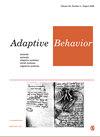Trusted Urban Places
IF 1.3
4区 计算机科学
Q4 COMPUTER SCIENCE, ARTIFICIAL INTELLIGENCE
引用次数: 0
Abstract
We draw on insights from ecological psychology, explorative architecture, and psychiatry to provide an analysis of basic trust in relation to urban places. We use the term basic trust to refer to the attitude of certainty we express when we act in skilled, often unreflective, habitual ways in the living environment. We will argue that the basic trust of people living in cities should be understood in relation to what we will call trusted urban places. Trusted urban places can be understood similarly as what Giovanna Colombetti and Joel Krueger have called “affective niches” that provide affordances for amplifying, dampening, and sustaining affective states. The basic trust of people living in cities, we will argue, depends upon people moving through and engaging with trusted urban places. In urbanism and architecture, it is barely recognized how the city affords places of affective significance that the person incorporates into their bodily way of existing. Persistent exposure to urban stressors can disturb basic trust in one’s living environment, resulting in a person no longer being at home in the world. We provide examples in which people, as a consequence of the repeated exposure to stressors, no longer move through and engage with trusted urban places, and the impact this has on their basic trust. Our aim is to understand how the urban environment can contribute to the path from stress to anxiety and mood disorders, and how a person can regain their openness to possibilities for regulating their emotions skilfully.值得信赖的城市场所
我们借鉴了生态心理学、探索性建筑学和精神病学的观点,对与城市场所相关的基本信任进行了分析。我们使用 "基本信任 "一词来指代我们在生活环境中以熟练的、通常不加思考的、习惯性的方式行事时所表达的确定态度。我们将论证,生活在城市中的人们的基本信任应结合我们称之为信任的城市场所来理解。值得信赖的城市场所可以被理解为类似于乔瓦娜-科隆贝蒂(Giovanna Colombetti)和乔尔-克鲁格(Joel Krueger)所说的 "情感龛位",这些龛位提供了放大、抑制和维持情感状态的能力。我们认为,生活在城市中的人们对城市的基本信任取决于人们在可信赖的城市场所中穿行和参与。在城市学和建筑学中,人们几乎没有认识到城市是如何提供具有情感意义的场所,让人们将其融入自己的身体存在方式中的。持续暴露在城市压力下会扰乱人们对生活环境的基本信任,导致人们不再对这个世界感到自在。我们举例说明,由于反复暴露于压力因素,人们不再在值得信赖的城市场所活动和接触,这对他们的基本信任产生了影响。我们的目的是要了解城市环境是如何导致人们从压力走向焦虑和情绪失调的,以及人们如何重新获得开放性,以巧妙地调节自己的情绪。
本文章由计算机程序翻译,如有差异,请以英文原文为准。
求助全文
约1分钟内获得全文
求助全文
来源期刊

Adaptive Behavior
工程技术-计算机:人工智能
CiteScore
4.30
自引率
18.80%
发文量
34
审稿时长
>12 weeks
期刊介绍:
_Adaptive Behavior_ publishes articles on adaptive behaviour in living organisms and autonomous artificial systems. The official journal of the _International Society of Adaptive Behavior_, _Adaptive Behavior_, addresses topics such as perception and motor control, embodied cognition, learning and evolution, neural mechanisms, artificial intelligence, behavioral sequences, motivation and emotion, characterization of environments, decision making, collective and social behavior, navigation, foraging, communication and signalling.
Print ISSN: 1059-7123
 求助内容:
求助内容: 应助结果提醒方式:
应助结果提醒方式:


